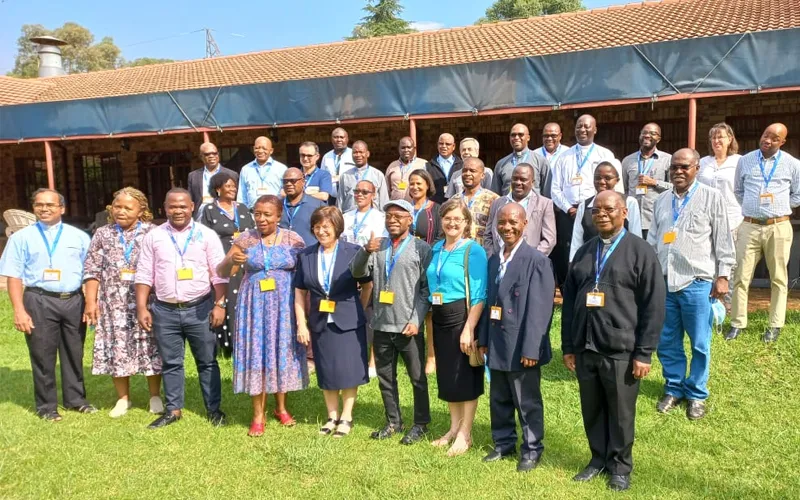“We are lucky that in the Catholic Church, we have structures from the grassroots. But are these structures being used? Do we protect the vulnerable?” the Local Ordinary of South Africa’s Aliwal Diocese posed, and added, “Let us use the Church structures.”
“Undocumented foreign nationals should approach the church’s migrants and refugees’ offices for assistance with registration, as we work closely with the department of home affairs,” he told ACI Africa February 24, the last day of the workshop that brought together Bishops, Secretaries General, Coordinators of Justice and Peace commissions, and persons responsible for migrants and refugees from eight countries of the Inter-Regional Meeting of Bishops of Southern Africa (IMBISA).
Participants in the workshop that was held in South Africa’s Pretoria Archdiocese reflected on the Encyclical Letter of Pope Francis, Fratelli Tutti.
They also deliberated on the necessary service to migrants and refugees in the nine IMBISA countries, namely, Angola, Botswana, Eswatini, Lesotho, Mozambique, Namibia, São Tomé e Príncipe, South Africa, and Zimbabwe.
In his closing remarks during the workshop that took place at Padre Pio Retreat Centre in Pretoria Archdiocese, Bishop Kizito said, “People working with migrants and refugees are expected to be the rock and give hope to these vulnerable groups in our society. “
Recalling deliberations during the four-day workshop that concluded February 24, Bishop Kizito said he was pleased to learn that “Pope Francis takes a very personal interest in the Vatican Section for Migrants and Refugees.”
In February 24 interview with ACI Africa, Bishop Kizito who was recently appointed the Liaison Bishop for Migrants and Refugees bemoaned the fact that some members of political parties used xenophobic sentiments to gain votes during South Africa’s local municipal elections last November.
“I would like to hear more voices through the media challenging the government, because there's a lot of impunity”, the Ugandan-born Bishop said, adding, “some (members of) political parties used xenophobic sentiments as a scapegoat to gain votes, and it worked for them.”
Catholic Church media, he said, has an important role to give visibility to efforts undertaken “to ensure that undocumented foreign nationals receive the much-needed assistance.”
Sheila Pires is a veteran radio and television Mozambican journalist based in South Africa. She studied communications at the University of South Africa. She is passionate about writing on the works of the Church through Catholic journalism.








